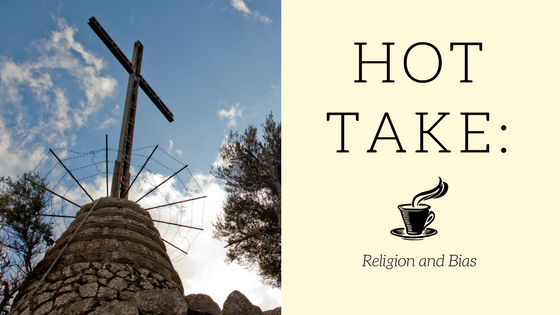Religion is not a monolith
Lack of nuanced thinking jeopardizes cooperation

Harry Metcalfe via Creative Commons license
Religion is a touchy subject but also a nuanced issue. How should people of faith, atheists, and all that lies in between tackle their differences?
Here’s a hot take: the sentiment “I’m against all religion indiscriminately” is not something radical or praiseworthy, and it alienates rather than paves the way for progress.
Religion is a pretty touchy subject. There are debates around the country of whether religious freedoms come above human rights, specifically in association with the LGBT community. Things can get legally messy, as seen in the recently heard “gay wedding cake” Supreme Court case. Despite the controversy, generally speaking, moral sanity would dictate that human rights are something separate from personal ideology. While some may see it as a double bind, in reality, there is no right to oppression, no matter your religion.
But how do these conversations affect societal view of religion and its adherents? If so many religions condemn people for arbitrary reasons, should we really be endorsing these institutions? Perhaps not. Perhaps all religion is a prison that leads only to small mindedness, and we’d all be much better off in a secular society.
But there are a lot of problems with these ideas. Even if these speculations were possible to determine, they aren’t very helpful. Eighty-four percent of the global population identifies as having a faith of some sort. Asking them to abandon that is unrealistic and not at all fair. Extremist sects that imbue violence and hatred in their followers are something that we should always condemn, but what do we do about people whose faith isn’t so black and white? What do we do about slight differences in worldview, and their effect on practical change?
Church and state must still be separated. Scientific fact must still be prioritized over religious belief in public education. These are all worthy aims that give every student a solid foundation on which to develop their own belief systems (which increasingly hold faith and fact as not being mutually exclusive). But it is reckless to refuse to accept and understand that a person’s faith is not subject to change, not something that can be “enlightened” out of them.
The issue is that this intolerance endangers cooperation. Starting conversations by immediately letting a person know that you find most likely one of the most important aspects of their life to be nothing but idiotic conformity isn’t what leads to collaboration. It stops possibly revolutionary ideas in their tracks, and cuts off dialogue in a harmful way. It prevents compromise. This is dangerous, from the high stakes of policymaking to the smaller scale of interpersonal relationships.
Of course, this understanding should be a two-way street. People of faith must understand that self-proclaimed atheists are highly unlikely to suddenly believe in a god, and they have to be okay with that. Here we’ve examined a somewhat small movement among atheists, but it’d be odd to suggest that, in the case of the United States, a Protestant majority is somehow being oppressed by the voices of a few militant atheists. (In other words, don’t get carried away. But there is a rather important qualification: many religious groups are subject to discrimination when they fall into the minority, which is something to keep in mind when denouncing religion as a whole).
The discussion began with the LGBT community, and it’ll end there, too, because there’s an interesting piece of information that brings everything full circle. LGBT individuals may have a complicated relationship with religious sects that openly discriminate against them, but many are people of faith, and exist vibrantly, embodying what many see as a paradox. Do we denounce their happiness, their purpose, too?

